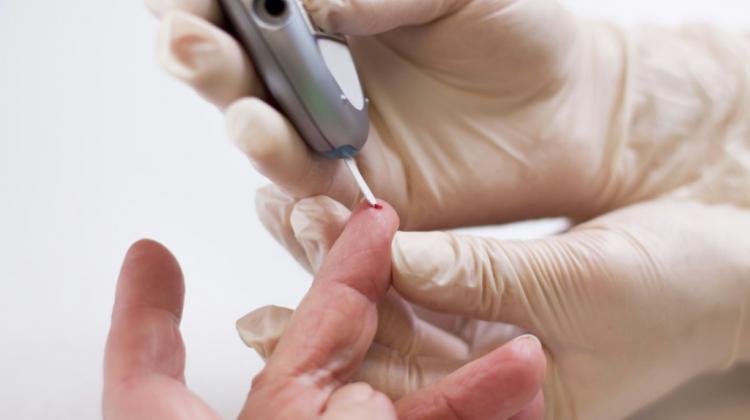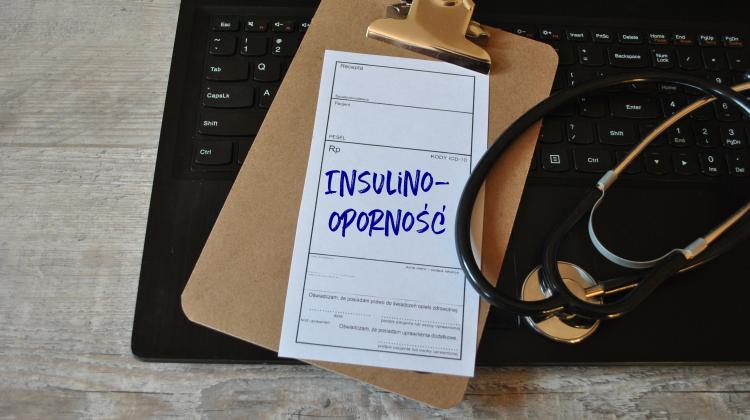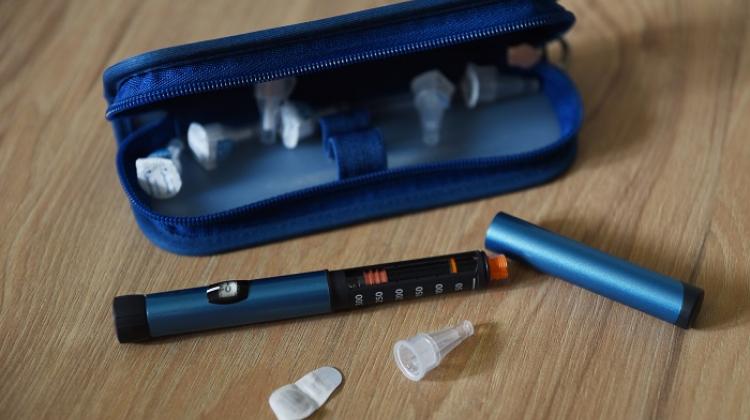Will it be possible to alleviate the effects of diabetic vascular complications?
 Photo: Fotolia
Photo: Fotolia
Researchers from Łódź are investigating whether physiological low concentrations of ketone bodies, which are fat metabolism products, can alleviate the effects of diabetic vascular complications in patients with type 2 diabetes.
Type 2 diabetes, which affects about 90 percent diabetic patients, is in a leading position on the World Health Organization (WHO) list of civilization diseases. It is associated with overweight and obesity, especially abdominal obesity, and related metabolic disorders.
In the case of diabetes, the amount of insulin produced by the pancreas, which regulates the rate of sugar consumption by tissues, is insufficient for the body`s needs. This is because the cells have acquired insulin resistance and have become less sensitive to the effects of this hormone.
According to the project leader Dr. Aneta Balcerczyk from the Faculty of Biology and Environmental Protection of the University of Lodz, recent studies on the etiology of type 2 diabetes indicate that metabolic memory can have a significant role in this disease.
"Metabolic memory are persistent adverse effects of metabolic dysfunctions, such as the production and accumulation of potentially harmful substances, even after achieving the key metabolic parameters at an acceptable level" - the researcher explains.
Elevated blood glucose levels can lead to many pathologies, including for glycation of proteins - AGEs (Advanced Glycation End Products). Such modified proteins often cease to fulfil their physiological functions. At the same time, their increased level favours a higher intensity of oxidation, generation of free radicals, leading to oxidant/antioxidant imbalance in the cell.
According to the researcher, in the case of the circulatory system, activation of endothelial cells may occur as a consequence, manifesting itself, among other things, by secretion of inflammation mediators, adhesion of leukocytes to vascular walls. Long-term activation of cells lining blood vessels is among the causes of many diseases of the cardiovascular system, including atherosclerosis and hypertension.
"In diabetes, metabolic memory is considered to be associated with the development of microvascular complications that lead to the development of diabetic retinopathy, nephropathy or neuropathy, even after achieving sufficient glycemic control" - emphasises Dr. Aneta Balcerczyk.
In addition to vascular complications in diabetic patients, from a metabolic point of view, a significant problem is diabetic ketoacidosis (DKA), manifested by a dangerously high level of ketone bodies that form as a result of fat metabolism.
In diabetic patients with poor glycemic control, the concentration of ketone bodies increases to compensate for the lack of cellular glucose utilization. Therefore, depending on the concentration in plasma, ketone bodies may be either an essential nutrient/energy component or a reflection of a pathological condition.
Recent scientific reports also indicate that ketone bodies - beta-hydroxybutyrate (β-OHBut) - can significantly affect cell metabolism by acting neuro-protectively. They are not only a backup source of energy, they also change the expression of genes, perhaps through the newly discovered epigenetic modification - protein β-hydroxybutyrylation, Dr. Balcerczyk adds.
Researchers from the Department of Biology and Environmental Protection of the University of Lodz in collaboration with French researchers from INSERM in Lyon will carry out research on this modification in the endothelium and tissues/cell lines that respond to insulin. They chose endothelium for research because microvessel dysfunction observed in type 2 diabetes directly affects its dysfunction.
"β-OHBut is effective in reducing oxidative stress and inflammation. We want to assess whether its use may also be beneficial in alleviating vascular endothelial dysfunction, very common in many vascular diseases and improperly managed diabetes" - says the project leader.
Researchers want to determine the effect of β-OHBut on the vascular endothelium by analysing the β-hydroxybutyrylation levels of histone proteins and investigate whether physiological concentrations of ketone bodies can alleviate the effects of complications and counteract endothelial dysfunction induced by prolonged elevated glucose.
In their research, they will use cells with silenced expression of SCOT transferase, responsible for the formation of ketone bodies, and mice fed according to the ketogenic (high fat) diet regimen.
The project "The effect of ketogenic diet and beta-hydroxybutyrate on key histone code signatures. Analysis of their potential values in metabolic disorders" is carried out with funds from the National Science Centre. Its completion is planned for June 2022.
PAP - Science in Poland
szu/ zan/ kap/
tr. RL
Przed dodaniem komentarza prosimy o zapoznanie z Regulaminem forum serwisu Nauka w Polsce.


















